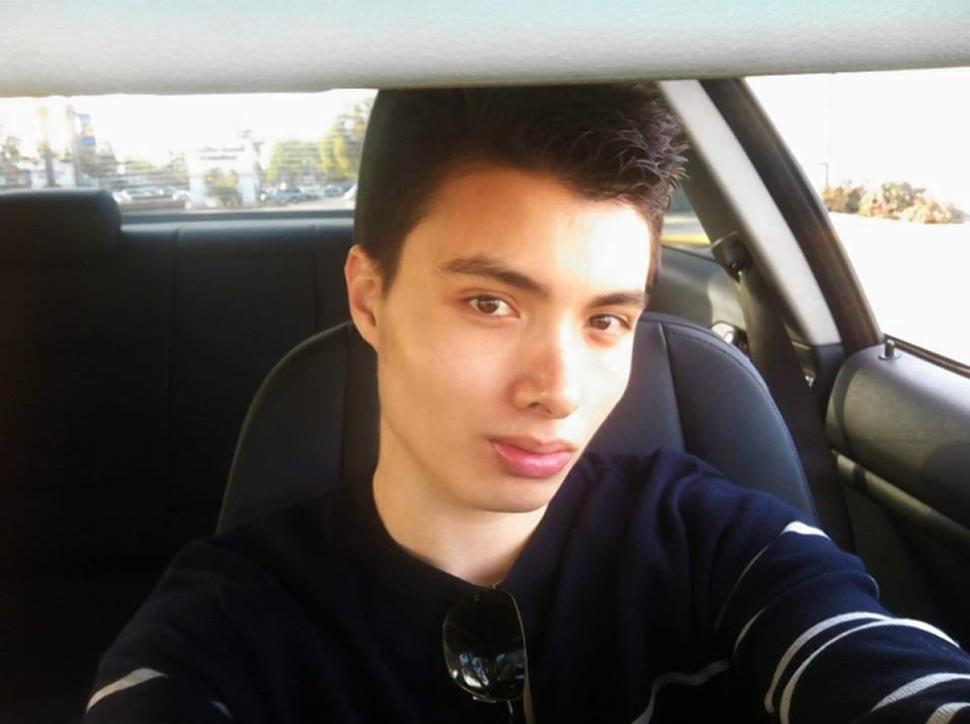It plays like a scene from a film: a man drives to a sorority house and opens fire on the students standing outside.
He has spent years plotting his rampage, fueled by misanthropy and supported by a community of online fanatics.
This is Elliot Rodger, a white male from California.
His murders would have been labeled an act of misogyny laden terror, but to the mass media, he is simply a pitiable boy with mental health issues.
Prior to the shootings, Elliot Rodger seemed normal; so much so that when the police came to his door to check on his violent tendencies, he successfully thwarted any suspicion by being shy, timid and polite. The authorities had been notified about the misogynistic videos he had posted online, but they didn’t take the time to watch them, taking Rodger upon his word when he explained away the videos as “merely a way of expressing himself.” They never even bothered to enter the apartment where he kept his stash of weapons – a near-discovery that Rodger himself noted within his lengthy 140-page autobiography.
According to his autobiography, as far back as the summer of 2011, Rodger begin plotting revenge against the “beautiful girls” who would not give him the time of day and the “obnoxious young brutes” they preferred instead. Earlier this year, he released his final video and autobiography to his parents and therapist, detailing his retribution. It was hours later that his therapist and parents would alert the authorities, but by then Rodger had left a trail of bloodshed ending with his own life and those of six innocent victims, as well as injuring thirteen more.

Photo Source: mirror.co.uk
Once the media and public began to examine Rodger’s videos and manifesto, debates ensued on larger issues, like the need for more stringent methods of gun control and an increased awareness of mental health issues in America. Words like “lone wolf” and “mass murderer” were tossed around to describe Rodger, but the profile that stuck was that of a mentally disturbed, lonely, angry individual. Although his manifesto clearly stated his hatred for a specific group–women who he believed had spurned his advances–the focus drifted away from the obvious misogyny and towards a portrait of young man with a bright future who had been failed by society. Why wasn’t Elliot Rodger being called what he was: a terrorist, fueled by hatred and misogyny?
Quite simply, the FBI states that terrorism is defined as activities that “involve acts dangerous to human life that violate federal or state law [and] appear intended to …coerce a civilian population.” Given the general definition, the acts that Elliot Rodger committed should be considered acts of terror – but they are instead deemed the machinations of a lonely, mentally unstable man. What keeps the media and the wider American community from connecting the dots between an act of terror and Rodger’s murderous rampage?

Photo Source: nydailynews.com
The image of a terrorist evokes not a young, white, upper-class American male, but rather a brown man, usually with a misguided but zealous understanding of the Islamic faith. CNN published a list of terrorists in 2013, nearly all of whom were foreign, religiously-motivated, and seemingly disconnected with the world around them. Yet in 2009, a Department of Homeland Security found that “lone wolves and small terrorist cells embracing violent rightwing extremist ideology are the most dangerous domestic terrorism threat in the United States.” In obsessively zeroing in one kind of threat, we are, at our own peril, ignoring another, larger one.
Instead of shying away from the reality and pinning Rodger’s murders on flimsy excuses like him being lost in the shuffle of the American mental health system, we must face the ugly fact that Elliot Rodger was a terrorist. By calling a spade a spade, we, as a community and a nation, can no longer conveniently dismiss the issue of terrorism as a systemic problem belonging to a religious ideology or ethnicity, but instead are forced to critically examine the world we have created, a world in which unstable individuals of all ethnicities, nationalities and ideologies terrorize their victims.
Ultimately, it is a disservice to insist on a double standard when it comes to the word terrorist. When we excuse acts of terrorism by young, white males as individual acts of violence, while labeling those by non-white perpetrators as a systemic problem, we create a skewed criminal justice response, as well as stunt discussions about preventative measures. We owe it to ourselves to pull our heads out of the sand and look every terrorist in the face.
Laila Alawa is a D.C. based writer and cultural critic who has been published at AltMuslim, The Huffington Post, The Guardian, School Library Journal and PolicyMic, amongst others. She serves as the founder and president of Coming of Faith LLC. She is an associate editor at The Islamic Monthly and conducted a study on Muslim American perceptions of belonging. Follow her on Twitter at @Lulainlife.



